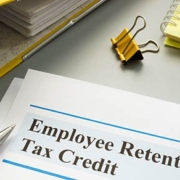FORGOT SOMETHING ON YOUR TAX RETURN? IT’S NOT TOO LATE TO AMEND THE RETURN
Article Highlights:
- Frequently Overlooked Income and Deductions
- Three-Year Refund Statute of Limitations
- State returns
- Interest & Penalties
- Filing Instructions and Suggestions
If you discover that you forgot something on your tax return, you can amend that return after it has been filed. The need to amend can be because of:
- Receiving an unexpected or amended K-1 from a trust, estate, partnership, or S-corporation.
- Overlooking an item of income or receiving a corrected 1099.
- Failing to claim the correct advanced premium credit because of an incorrect 1095-A.
- Forgetting about a deducible expense.
- Forgetting about an expense that would qualify for a tax credit.
These are among the many reasons individuals need to amend their returns, whether it is for the just-filed 2014 return or prior year returns.
Here are some key points when considering whether to file an amended federal (Form 1040X) or state income tax return.
- If you are amending for a refund, you should be aware that refunds generally won’t be paid for returns if the three-year statute of limitations from the filing due date has expired. Thus, with the exception of amending a return to carry back a business net operating loss (NOL), the IRS will pay refunds only on returns from 2012 through 2014. Some states have a longer statute. The last day to file an amended 2012 return for a refund is April 15, 2016.
- Generally, you do not need to file an amended return to correct math errors you made on the return. The IRS or state agency will automatically make those corrections. Also, do not file an amended return because you forgot to attach tax forms such as W-2s or schedules. The IRS or state agency will send a request asking for the missing forms.
- If you are filing to claim an additional refund, wait until you have received your original refund before filing Form 1040X. You may cash that check while waiting for any additional refund.
- If you amend returns and owe additional tax, you will be subject interest and penalty charges. Interest is charged on any tax not paid by the due date of the original return, without regard to extensions.
- When amending multiple returns, send them in separate envelopes. Sometimes when filed together, they are mistaken for a single return, and the additional returns filed in the same envelope are not processed.
- If the changes involve another schedule or form, it must be completed and included with the amended return. In addition, it may be appropriate to include documentation to avoid subsequent correspondence from the IRS or state agency.
- A detailed explanation of the changes must also be attached. This is required to explain to the processing staff the reason for the amendment. An insufficient explanation can lead to additional correspondence and delays. 8. Depending on why you file an amended federal return, you may be required to amend your state return. However, if the federal amendment is filed to claim or correct a tax credit that the state does not have, no state amended return will likely need to be filed. In most other circumstances, you will need to amend the state return as well as the federal.
An amended return can be more complicated than the original, so please contact this office for assistance in preparing your amended returns.








Leave a Reply
Want to join the discussion?Feel free to contribute!